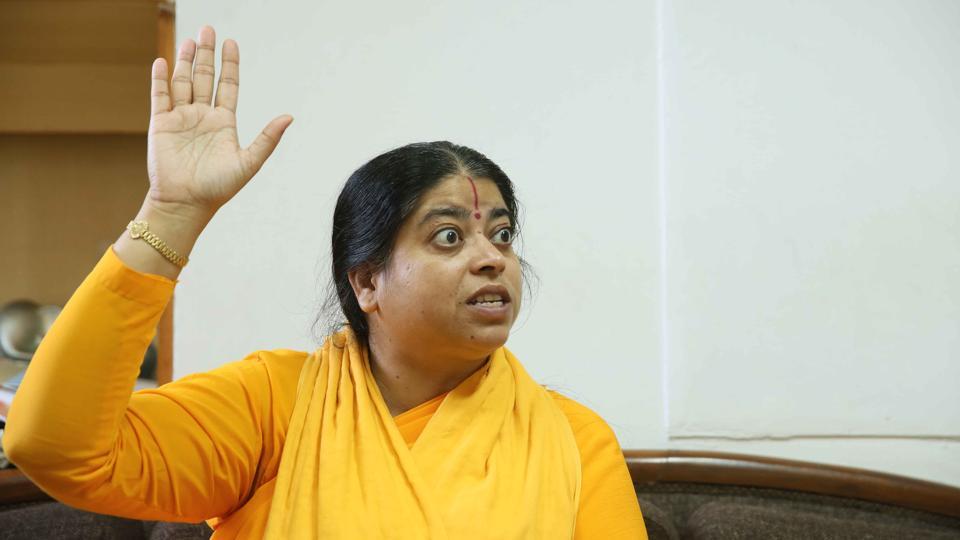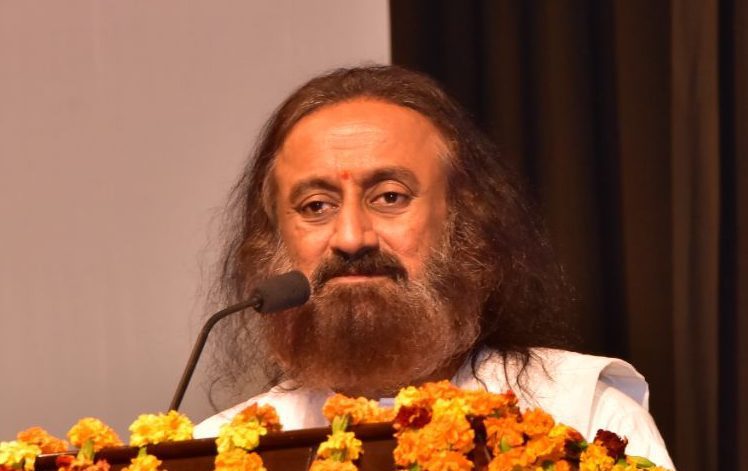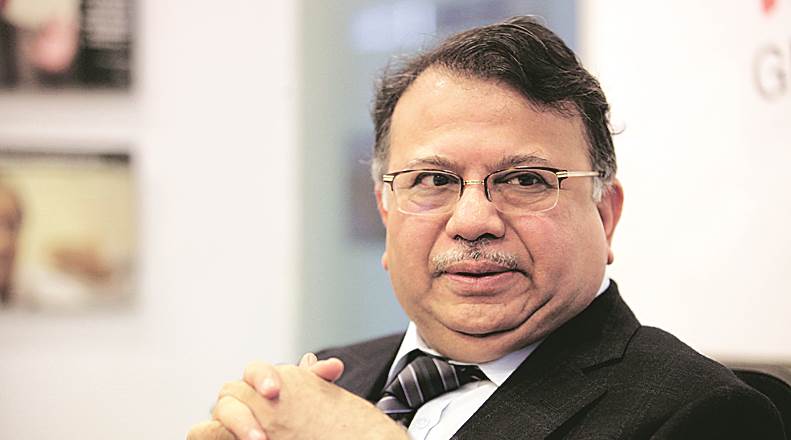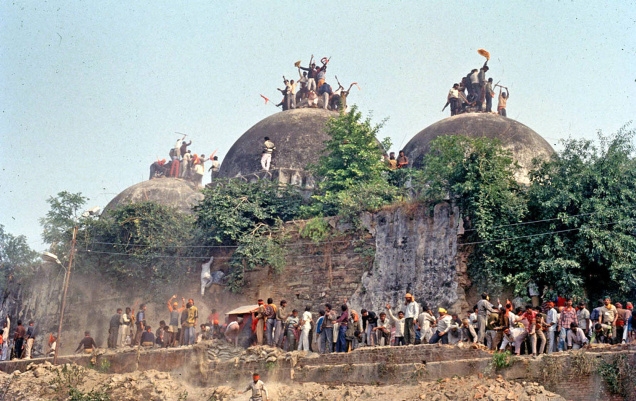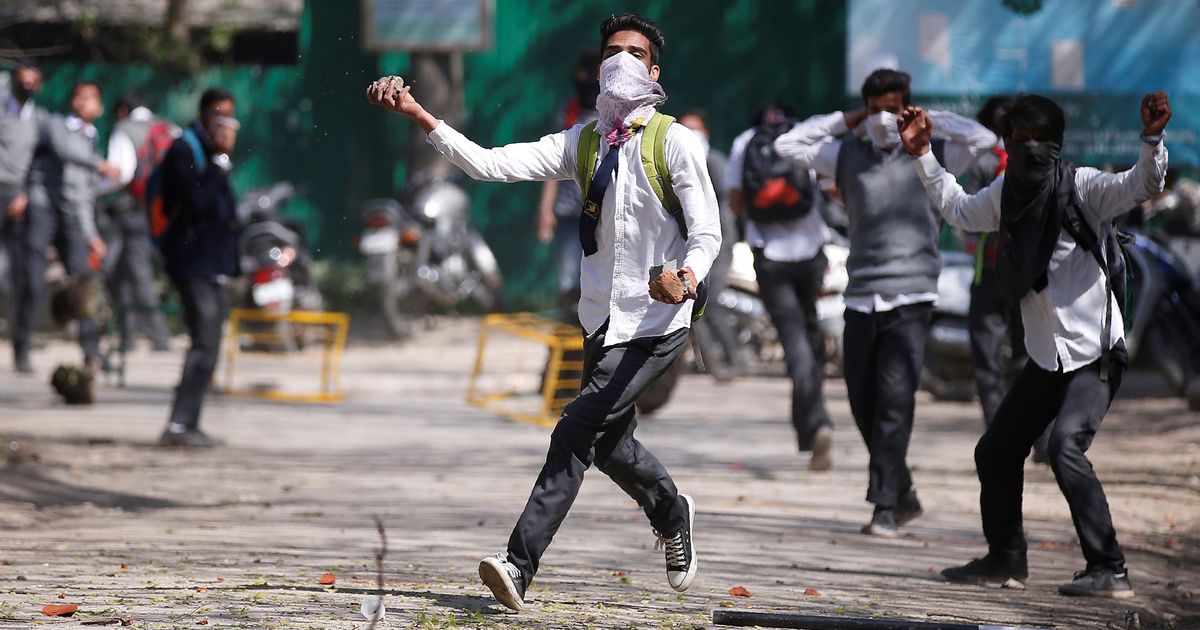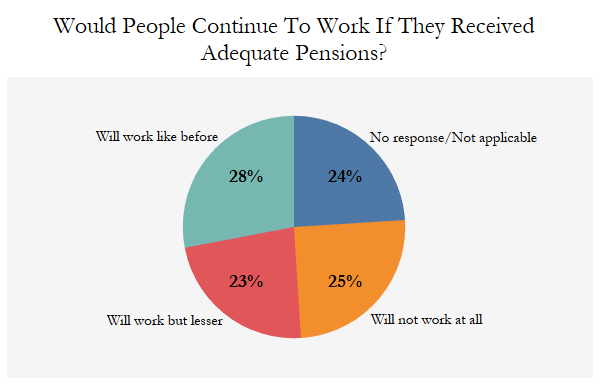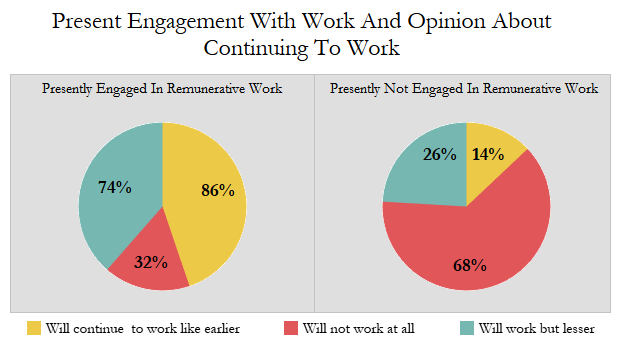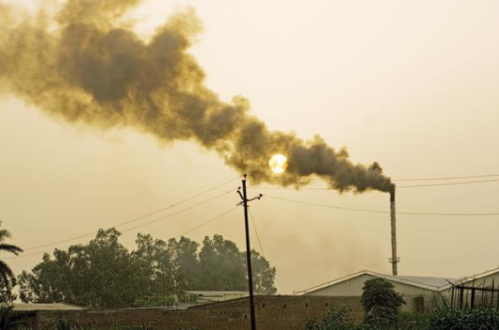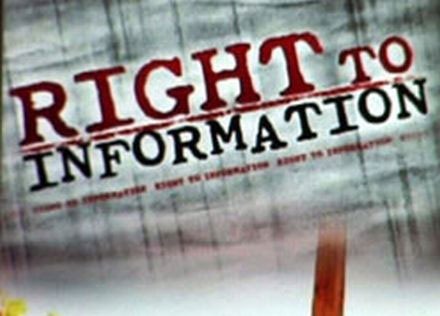The former Delhi High Court Judge, Justice A.P. Shah delivers the M.N.Roy Memorial Lecture on Free Speech, Nationalism And Sedition

Text of the Entire Lecture
Introduction
“A parochial, selfish, narrow minded nationalism has caused so much misfortune and misery to the world. A mad and exaggerated form of this cult of nationalism is today running rampant….”
This statement made by M.N. Roy, as far back as 1942, may resonate with many even today, particularly in these times we live in.
Good evening, Justice Chalmeswar, Mr. Pancholi and distinguished members of audience. It is a privilege and an honour to be here to deliver the M.N. Roy Memorial lecture today.
M.N. Roy was a leading intellectual and thinker, and an activist philosopher, who was deeply involved in the Humanist Movement. He was critical of the fundamentals of Indian nationalism and the ideology of nationalism in general, particularly in light of the rise of Fascism and Nazism and the outbreak of the Second World War.
Roy left India during the earlier part of the First World War as a full-blooded nationalist, but changed his views after much reflection and new political experiences. He founded the Communist Party of Mexico in 1919, the first Communist Party outside Russia. During the second World Congress of Communist International, Roy helped formulate the famous Thesis on the National and Colonial Question by Lenin, although he disagreed with Lenin on the class composition of the leadership of the nationalist movement in colonies. Subsequently, on account of disagreements with Stalin, Roy returned to India in December 1930….
His return, however, was short lived. In July 1931, he was arrested on charges of sedition for the Bolshevik Conspiracy Case and tried in Kanpur Jail, without any open trial. He was sentenced to jail for 12 years, and was eventually released within six years at the age of 36. Thereafter, Roy joined the Congress, although he ultimately fell out with them on account of their reluctance to support the British to oppose fascism (which he considered to be a greater evil) in the Second World War.
After India became independent, Roy became a chief proponent of the idea of “radical humanism”, which he described as “a new humanism”. He continued writing on nationalism and on its economic and political aspects. In 1944, he drafted a “Constitution of Free India”, where he included a chapter on “Declaration of Fundamental Rights” which clearly stated that a “right to revolt against tyranny and oppression is sacred”.
The Situation Today
Roy’s ideas thus covered a broad range of topics, including speech and dissent. In fact, that is exactly why I have chosen to speak on Nationalism, Free Speech and Sedition for this memorial lecture.
Today, we are living in a world where we are forced to stand for the national anthem at a movie theatre, we are told what we can and cannot eat, what we can and cannot see, and what we can and cannot speak about. Dissent, especially in the university space, is being curbed, and sloganeering and flag raising have become tests for nationalism. We have a 21-year old University student who is subject to severe online hate, abuse, and threats, only because she dared express her views.
In any society, at any given point of time, there will always be people holding divergent views. Such views are integral and inevitable in a healthy, functioning democracy. Nowhere has this been better expressed than by the judgment of the Bombay High Court in F.A. Picture International v CBFC, where the Court said:
“History tells us that dissent in all walks of life contributes to the evolution of society. Those who question unquestioned assumptions contribute to the alteration of social norms. Democracy is founded upon respect for their courage. Any attempt by the State to clamp down on the free expression of opinion must hence be frowned upon”
Unfortunately, however, our institutions of learning are under attack today and there is a concerted attempt to destroy any independent thought. Today, sadly, in this country I love, if anyone holds a view that is different from the government’s “acceptable” view, they are immediately dubbed as “anti-national” or “desh-drohi”. This marker of “anti-national” is used to intimidate and browbeat voices of dissent and criticism, and more worryingly, can be used to slap criminal charges of sedition against them.
All these factors have led me to choose the present topic to generate further discussion and debate. I think it is all the more important to discuss and talk about nationalism.
What is Nationalism?
At the very outset, I would like to caution against, what the celebrated Nigerian author Chimamanda Adichie terms, the “danger of a single story” – the danger of understanding an idea only from a single perspective and ignoring the diversity of views present. Mridula Mukherjee points out the nuances in the word “nationalism” and how it encompasses the ideas of progressive nationalism, a revolutionary pro-people nationalism, and a regressive and jingoistic nationalism. Hitler’s nationalism, after all, was very different from Gandhi and Nehru’s nationalism. The European conception of nationalism, developed from the days of the Treaty of Westphalia and in the age of imperialist expansion, focused on the enemy within, whether the Jew or the Protestant. In contrast, the Indian conception of nationalism, developed as an opposition to an external imperialist British state, was more inclusive in uniting the people against them. This was then, an “anti-colonial nationalism, where the primary identity of an Indian was not their religion, caste, or language, but their unity as equals in their demand for freedom. It is thus important to remember that there is no single overarching “right” conception of nationalism.
How then did M.N. Roy understand nationalism? In Roy’s view, nationalism was representative of the desires and ambitions of a group of people within a certain geographical area, as opposed to people uniting on the basis of class. Nationalism thus emphasised the placing of one’s country’s interest over the interest of the rest of the world. There was a time in the 19th century, when countries were still isolated from each other, when nationalism was a historic necessity, under whose banner people came together and humanity progressed. However, he believed, it had now become a selfish, narrow-minded “antiquated cult”, and the world should progress towards internationalism and international cooperation. The ambitions of different nations began to conflict with each other, contributing to an exaggerated and irrational form of nationalism, which manifest itself in the rise of Fascism and Nazism, eventually leading to the Second World War. Nationalism, in Roy’s eyes, had thus become a synonym for revivalism, whose advocates were consigned to glorify the past and advocate for a return to the bliss of the middle ages and a simpler life.
Rabindranath Tagore, the composer of the Indian national anthem, had even more radical views on nationalism. He believed that a fervent love for the nation represented a conviction of national superiority and a glorification of cultural heritage, which in turn was used to justify narrow-minded national interest. Writing in 1917, Tagore said, “when this organisation of politics and commerce, whose other name is the Nation, becomes all powerful at the cost of the harmony of higher social life, then it is an evil day for humanity.” He thus cautioned against such an exclusionary and self-aggrandizing form of nationalism that was based on a hate culture against an imagined or actual Other, who was viewed as the enemy.
On the other hand, the revivalists focus on the glory of ancient India, going back to the Aryan race as the building block of the Indian civilisation. This takes the form of cultural nationalism, where anyone celebrating “Western” festivals such as Valentine’s Day or even couples merely holding hands are to be ostracised and attacked. As religious nationalism, it endorses the two-nation theory, which envisages a nation under Hindu rule, a Hindu rashtra in Akhand Bharat (a United India). This is premised on the belief that only a Hindu can claim the territory of British India as a land of their ancestry, i.e. pitribhumi, and the land of their religion, i.e. the punyabhumi. As Vinayak Damodhar Sarvakar propounded, “Hindu Rashtra (state), Hindu Jati (race) and Hindu Sanskriti (culture).” Muslims and Christians are viewed as foreigners, who are not indigenous to the territory of India, and whose religion originated in a separate holy land.
At this point, I would like to share my personal background. My maternal grandfather was the President of the Hindu Mahasabha in the 1940s, and the first literature that I ever encountered in my school days was Sarvarkar’s writings. Writing in 1938, when Hitler was on the rise, Sarvarkar justified Hitler’s policies towards the Jews and driving them away from the motherland. He said, “A nation is formed by a majority living therein. What did the Jews do in Germany? They being in minority were driven out from Germany.” I am not sure whether his views changed after World War 2, and when the extent of the holocaust came to be known. Sarvarkar further believed that minority groups must lose their separate existence and separate identity if they want to live in India.
Roy, unsurprisingly, was critical of such views. While discussing the declaration made by the President of the Hindu Maha Sabha that “the majority is the nation”, Roy said that it sounds quite in “tune with formal democracy”, but in reality “particularly in the prevailing atmosphere of Indian politics, it means that in a nationally free India the Muslims, constituting nearly 1/3rd of the population, will have no freedom”. He was thus against removing an imperialist regime and replacing it with a nationalist regime, which would continue to deny real freedom to most of the Indian people.
It is important to remember that both Tagore and Roy wrote in the context of the First and Second World War respectively. They had thus, witnessed first hand, how the pursuit of the glory of the nation had resulted in the great wars, and betrayed the ideas of liberty, equality, and fraternity of the French Revolution. Today, in independent India unfortunately, having such views is almost blasphemous and perhaps seditious.
India is a diverse country and people hold different views about nationalism, the idea of India, and our place in the world. We must respect these differences, not silence those who hold a different view on nationalism and patriotism for the country. Elevating only a single view – one that idolises the nation and staunchly rejects any internal or external criticism – will only polarize citizens against each other.
At the end of the day, it is important to question, what is the defining characteristic of a nation – is it the territorial boundary or the collection of people that is a country’s defining feature. Our Constitution starts with a solemn declaration of “We, the people of India…” In this context, is being anti-national equivalent to being anti-Government or is the hallmark of an anti-national that they are against the interest of the people, especially the minorities and the depressed classes? Can an entire University and its student body be branded “anti-national”?
Our current state of affairs is especially sad when we consider that the freedom struggle gave us a country and a Constitution that was committed to the ideals of democracy, free speech, civil liberties, and secularism. Unlike Pakistan, religion is not the founding basis of our nation. Our right to free speech and expression is not a gift or a privilege that the Government bestows on us; it is our right, guaranteed by the Constitution of India, and won after decades of struggle and sacrifice by the people of India.
1. Free Speech…
Free speech and the Constitution
Writing in Young India in 1922, Gandhi said, “We must first make good the right of free speech and free association before we make any further progress towards our goal. We must defend these elementary rights with our lives.”
Gandhi’s views were based on his belief that liberty of speech is unassailed even when the speech hurts and that “freedom of association is truly respected when assemblies of people can discuss even revolutionary projects.”
Gandhi was not alone in his ideas. Our early nationalist leaders too, from Raja Ram Mohan Roy to Bal Gangadhar Tilak, made the grant of civil liberties to ordinary Indians an integral part of the national movement.
These very ideas were incorporated into the Constitution by the Constitution drafters. They understood that while the freedom of worship is part of democracy and is a fundamental right, the edifice of modern democracy has to be the freedom of thought and expression. Our Constitution is drafted as a positive, forward-looking, inclusive document that binds the aspirations of all Indians. The Preamble expresses the resolve of the people to constitute India into a sovereign, socialist, secular, democratic republic securing justice, liberty, equality, and fraternity of its citizens. This achievement is all the more noteworthy if we consider, as Fali Nariman recently pointed out, that in a Constituent Assembly of 299, 255 members (85%) were Hindus. Despite being in a massive majority, the Constitution drafters took pains to protect the interests of the minority, the oppressed, and the dissenters.
Having been given a magnificent and inclusive Constitution, it then fell on the Supreme Court to protect the rights guaranteed therein, especially the right to free speech and expression.
Free speech and the Court
The Supreme Court has repeatedly emphasised the value of free speech, noting that the freedom of speech and expression lies at the foundation of all democratic organisations, inasmuch as free political discussion facilitates public education and enables the proper functioning of the processes of government. The Court has emphasised the function of free speech as promoting autonomy and self-fulfilment, maintaining truth, and performing the function of a watchdog. It has also given express recognition to the value of free speech in a “market place of ideas”, by quoting the famous dissent of 1919 of Justice Holmes in Abrams vs. United States:
“But when men have realized that time has upset many fighting faiths, they may come to believe even more than they believe the very foundations of their own conduct that the ultimate good desired is better reached by free trade in ideas – that the best test of truth is the power of thought to get itself accepted in the competition of the market, and that truth is the only ground upon which their wishes safely can be carried out.” (Emphasis supplied)
The value of free speech is thus, both intrinsic and instrumental, and has consistently been linked to democratic ideals. For example, the censorship of the play “Mee Nathuram Godse Boltoy”, which was extremely critical of Mahatma Gandhi was not permitted by the Bombay High Court. In an insightful judgment in Anand Chintamani Dighe vs State Of Maharashtra, the Court highlighted the importance of respect for, and tolerance of, a “diversity of viewpoints”, as being essential to sustain a democratic society and Government. The Court further went on to state, “Popular perceptions, however strong cannot override values which the constitution embodies as guarantees of freedom in what was always intended to be a free society.” In the same vein, the Supreme Court in Director General, Doordarshan vs Anand Patwardhan held in 2006 that the State cannot prevent open discussion, regardless of how hateful such discussion was to the State’s policies.
The importance of dissent is best understood by the Supreme Court’s view in S. Rangarajan v P. Jagjeevan Ram that “In a democracy it is not necessary that everyone should sing the same song..”.
It has thus long been understood that free speech has to be countered by more speech; that the response to criticism is not to shut it down, but to engage with, and respond to, the speaker. Moral vigilantism, as Upendra Baxi rightly recognises, has no place in our Constitutional polity and democracy.
Free speech, though, is under attack. The joy over the striking down of Section 66A of the IT Act in Shreya Singal was soon replaced by despair over the Supreme Court’s decision to uphold the constitutionality of criminal defamation in Subramaniam Swamy v UOI and its “order” directing all cinema halls across India to play the national anthem before the start of a film, and requiring the audience to stand up as a “show of respect”. I shall discuss the National Anthem order in further detail later on in my speech.
Just last month, in relation to the comments made by Azam Khan regarding the Bulandsher gang rape, the Supreme Court raised the question of whether the right to free speech under Article 19(1)(a) is to be controlled singularly by the language under Article 19(1)(a) is to be controlled singularly by the language under Article 19(2) or is it also impacted by the expansive right to life and personal liberty under Article 21 of the Constitution. The answer to this question will have a profound impact in restricting the scope of Article 19(1)(a) and undermine our Constitutionally guaranteed right.
Even the Bombay High Court, whose decisions I have referred to above, has on occasion failed to protect the right to free speech. Recently, it constituted a three member committee (comprising of two lawyers) to give a report on the scenes in the Jolly LLB-2 it found “objectionable”, because it was prima facie of the view that certain scenes – those involving a cowering judge and some dialogue between the lawyers – were in contempt of the judiciary and the legal profession. Mind you, this was a movie where the CBFC, i.e. the Censor Board, has given the requisite certification for its release. It was also a case where the High Court entertained the writ petition (later converted to a PIL) based only on two trailers and some photographs! As Justice Lodha had said, while dismissing a similar petition when Jolly LLB-1 released, if the Petitioners don’t want to watch the movie, no one is forcing them. The Bombay High Court’s order, the report of the three member “committee”, and the proximity of the release date, essentially forced the producers and director of the movie to “compromise” and undertake to make the requisite modifications and deletions to the objectionable scenes.
I only hope that these judgments are aberrations in an otherwise glorious history of the Indian Judiciary in protecting and promoting the Constitutionally guaranteed right to free speech and expression.
However, free speech has to be protected institutionally – not only by the Courts, but also by statutory institutions and the media. Unfortunately, we read about reports where the CBFC, our “censor board” has refused to certify a movie such as Lipstick under my Burkha, because it was “lady oriented”, contained “sexual scenes, abusive words, audio pornography”; deleted the line “mann ki baat” from the upcoming movie Sameer because that is the name of the Prime Minister’s radio show; and demanded that the Hanuman Chalisa be muted from a scene in Phillauri, because it failed to ward off the ghost. How can you forget that in Udta Punjab, a Adult-only certified movie, the Censor Board demanded 94 cuts (based on 13 suggestions), including deleting the name “Punjab”, deleting certain abuses and deleting the words “Election”, “MP”, and party worker”. If this is not an assault on the freedom of speech and expression, then I don’t know what is.
The freedom of the press is part of the freedom of speech guaranteed under Article 19(1)(a). This is because a free press is essential to disseminate different views, and promote democratic ideals. More importantly, today, when mass-communication and digital media have become prevalent, the media assumes an even greater importance in playing the role of the opposition and checking facts. In fact, no other institution wields as much power and influence on public opinion as the media. However, in recent times, a section of the media, through its biased and one-sided reporting, has unfortunately aided in the restriction on free speech. A news channel airs false and doctored footage, while others openly flame the fans of this patriotism and anti-national debate. It is ironic that the media, which played a critical role in asserting its right to free speech during and after the emergency, and in the process helped develop our Article 19(1) jurisprudence, is now the institution that is compromising and challenging the same freedom of speech of the dissenters today.
We also have social media, where online trolls and threats of rape and murder are regularly made against people supposedly making anti-national statements. I am left to ask myself, which part of Indian culture permits or promotes the making of such statements threatening a girl with rape or murder. Who are these people on Twitter and other social media, who take comfort in their anonymity to make such aggressive threats against individuals?
Having discussed the meaning of nationalism and the importance of free speech in some detail, it is appropriate for me to now turn to examine issues that are raised by nationalistic fervour, whether sedition, the national anthem, the attack on universities, and cow slaughter. A common theme linking these topics is the idea of “cultural nationalism”, where cultural conformism is being foisted upon the entire nation, without consideration of people’s personal choices, values and regional differences.
Nationalism and Sedition
Sedition is a word, almost everyone in India has heard of today, because of the events at JNU last year. Historically, our conversation around sedition centred around British injustice in convicting and sentencing Tilak and Gandhi to prison for their publication of allegedly seditious material. Tilak, before his arrest in 1908, reportedly told a police officer, “The government has converted the entire nation into a prison and we are all prisoners. Going to prison only means that from a big cell, one is confined to a smaller one.” Gandhi, in 1922, pleaded guilty to the charge of sedition, stating that he was proud to oppose a Satanic government.
These stories are shared with bristling outrage about the British misuse of this law and pride with which our freedom fighters opposed them. More than 90 years later, however, we are still grappling with the fact that the crime of sedition was invoked against a group of 20-something University students for doing what students in a campus should feel entitled to do – raise slogans, debate, disagree, and challenge each other on complex, political issues that face the nation today.
Sedition laws were enacted around the 17th Century in England in a bid to protect the Crown and the State from any potential uprising. The premise was that people could only have a good opinion of the government, and a bad opinion was detrimental to the functioning of the government and the monarchy. It was subsequently introduced in the Indian Penal Code in 1870.
The first major case was when Bal Gangadhar Tilak was brought to trial for sedition in 1897 for his lectures and songs at the Shivaji Coronation Ceremony. Given that these speeches and songs made no mention of overthrowing or disobeying the government, the Court widened the interpretation of sedition by equating “disaffection” to “disloyalty,” and including within it hatred, enmity, dislike, hostility, contempt, and every form of ill will towards the government. This interpretation became a part of the legal text, when Section 124A was amended to add the words “hatred” and “contempt” alongside “disaffection”, which was defined to include disloyalty and feelings of enmity. Thereafter, in 1908, Tilak was again charged with sedition for the publication of a critical article in his magazine Kesari. He was held guilty and sentenced to six years imprisonment by the Bombay High Court, which ruled that no one was permitted to “attribute dishonest or immoral motives to the Government.”
The next landmark sedition case pre-independence was Gandhi’s trial for the offence of sedition for his articles in the Young India magazine. The trial itself was remarkable for his decision to plead guilty to the charge of sedition and Justice Broomfield’s reluctance to sentence him, because he did not believe that Gandhi deserved to be charged with sedition in the first place.
Interestingly, during the Constitution Assembly debates, there were two attempts made to include sedition as a ground for restricting free speech. Eventually, however, due to trenchant opposition by members of the Constituent Assembly and their fear that sedition would be used to crush political dissent, it was dropped from Article 19(2) and the Constitution. These actions of the framers were expressly noted by the Supreme Court in 1950 itself, in its decisions in Brij Bhushan and Romesh Thappar.
The decisions of the Supreme Court prompted the First Amendment to the Indian Constitution, wherein Article 19(2) was amended and “undermining the security of the State” was replaced with “in the interest of public order”. However, while speaking in Parliament, Nehru clarified:
“Take again Section 124-A of the Indian Penal Code. Now so far as I am concerned that particular section is highly objectionable and obnoxious and it should have no place both for practical and historical reasons, if you like, in any body of laws that we might pass. The sooner we get rid of it the better.” [Emphasis supplied]
Finally, in 1962, a Constitution Bench of the Supreme Court had the chance to authoritatively decide on the constitutionality of Section 124A of the IPC in Kedarnath Singh v State of Bihar in light of the “public order” restriction in Article 19(2). It had to grapple with conflicting decisions of the Punjab and Patna High Courts on the constitutionality of sedition. The Court upheld the constitutionality of sedition, but limited its application to “acts involving intention or tendency to create disorder, or disturbance of law and order, or incitement to violence.” It distinguished these acts from “very strong speech” or the use of “vigorous words” which were strongly critical of the Government.
The final case that I would like to discuss is the 1995 decision of the Supreme Court in Balwant Singh v State of Punjab, where it acquitted the persons who had shouted slogans such as “Khalistan zindabaad, Raj Karega Khalsa” outside a movie hall a few hours after Indira Gandhi’s assassination on charges of sedition. Instead of simply looking at the “tendency” of the words to cause public disorder, the Court held that “raising of some lonesome slogans, a couple of times… which neither evoked any response nor reaction from anyone in the public” did not amount to sedition, for which a more overt act was required. The Court took cognizance of the fact that the accused had not intended to “incite people to create disorder” and that no “law and order problem” actually occurred.
It is through this lens that one should view the JNU incident. The law, as we saw above, is quite clear on the distinction between strong criticism of the government and the incitement of violence, with only the latter being related to sedition. Thus, regardless of whether the JNU students’ slogans were anti-national, hateful, or an expression of contempt and disdain against the government, as long as they did not incite violence, it does not get covered under sedition. As Upendra Baxi reminds us, we should remember the distinction between “constitutional patriotism” (and fidelity to the Constitutional purpose) and “statist patriotism” (what Gandhi called “manufacturing affection for the state”). Keeping this in mind, I would like to express my anguish on the language of the Delhi High Court’s bail order and the unnecessary invocation of patriotism and nationalism.
Gandhi said, “Affection cannot be manufactured or regulated by the law. One should be free to give full expression to their disaffection unless it incites violence.” This, as we have seen above, is in fact the standard of Kedar Nath. Unfortunately, the broad scope of Section 124-A allows it to be used by the State to go after those who challenge its power, whether it is the JNU students, activists such as Hardik Patel and Binyak Sen, authors such as Arundhati Roy, cartoonists such as Aseem Trivedi, or the villagers of Idinthakarai in Tamil Nadu protesting against the Kudankulam Nuclear Power Plant. These examples are demonstrative of the misuse of the provision. The law is clear that mere sloganeering is not enough, and has to be accompanied by a call for violence. However, at the stage of registering the FIR and initiating criminal proceedings, the question of the interpretation of the section in line with the Supreme Court’s jurisprudence, does not arise. Thus, sedition charges are easily slapped, but seldom stick, but cause immense harassment in the process. Even if one is eventually acquitted of sedition, the process of having to undergo the trial itself is the punishment – and more importantly, the deterrent against any voice of descent or criticism.
The enforcement or the threat of invocation of sedition constitutes an insidious form of unauthorised self-censorship by producing a chilling effect on the exercise of one’s fundamental right to free speech and expression. That is why the law needs to be repealed. However, it is unlikely that any government will give up this power, and it is therefore left to the courts to re-examine the constitutionality of sedition. It is not enough to expect an acquittal by the courts after 4-5 years; we need to stop the misuse of the law to silence dissent by removing the source of the power itself.
Interestingly, England, from whom we have inherited the offence of sedition, recently repealed the offences of sedition and seditious libel, along with defamatory libel, and obscene libel. In doing so, the Justice Minister, Ms. Claire Ward observed in 2009,
“Sedition and seditious and defamatory libel are arcane offences – from a bygone era when freedom of expression wasn’t seen as the right it is today…. The existence of these obsolete offences in this country had been used by other countries as justification for the retention of similar laws which have been actively used to suppress political dissent and restrict press freedom…Abolishing these offences will allow the UK to take a lead in challenging similar laws in other countries, where they are used to suppress free speech.”
Nationalism and the University Space
It seems that February is the season for targeting dissent. If it was JNU and azaadi in 2016, this February saw the Ramjas-DU protests. University spaces are traditionally meant to be spaces for dissent, where students engage and challenge each other and the dominant narrative, in an attempt to develop their own principles and beliefs. In fact, the best Universities in the world are those that champion free thinking and disagreement amongst their students, faculty, and administration. However, this space is under challenge in India.
Just think about the events that have transpired over the last couple of years that have sought to undermine academic institutions and academic freedoms – from the backlash against University of Hyderabad’s Rohit Vemula’s mother, declaring that she was not a “dalit”; to the charges of sedition levelled against JNU students; to protests at Ramjas/DU about the organisation of a seminar; and the outcry against an undergraduate student’s tweet.
As part of the #FightbackDU campaign that was launched in response to the Ramjas protests, a 21 year old LSR student, Gurmehar Kaur, tweeted a photo “I am not afraid of ABVP”. A video, where she held a placard saying “Pakistan did not kill my father, war did” went viral and became the subject of intense national discussion and debate, with cricketers, actors, and politicians all joining in to criticise the girl. In fact, she was subject to such hostility, threats, and violence, especially online that she had to get security and leave Delhi. Have we really reached such a stage of insecurity that a 21 year old’s views have to be met with such backlash? That the Union Home Minister for the State has to tweet, “Who is polluting this young girl’s mind?” The guarantee of freedom of speech rings hollow, if the State cannot guarantee freedom after speech.
The inaction of State institutions like the police in light of the violence and bullying by certain groups leads to a fear psychosis amongst students. Unless some remedial action is taken, we will produce an entire generation of students who will never have been encouraged to question the dominant ideas and encouraged to think differently. This will influence not just the nature of democratic citizenship, but will have a direct impact on the innovation and creative thinking that are necessary for economic progress of a nation.
Nationalism and patriotism
Before concluding, I would like to talk about two more issues connected to free speech and nationalism. The first relates to the Supreme Court’s national anthem order requiring all movie-goers to “stand up in respect” for the national anthem before before the start of a movie in order to “instill a feeling within one a sense of committed patriotism and nationalism”. The order of the Court, which seems a little short on reasoning to help understand how such an interim order was passed befuddles, and seems contrary to the spirit of the Constitution and past precedent, Bijoe Emanuel, which made it clear that we cannot be forced to sing the anthem. It is important to remember that the right to free speech and expression also includes the right not to speak or express ourselves. However, under the guise of “law”, the Court has now stepped in and restricted our fundamental rights.
As Pratap Bhanu Mehta points out, the order fails to understand a distinction fundamental to liberal democracy – everything that is desirable or makes for a better citizen does not, and should not, be made compulsory. In fact, making something compulsory undermines the very meaning of that action and the respect that is normally accorded to it. It is a form of, what I would call, “conscripted nationalism”. Just as joining the Army is a noble career path, our lawmakers have rightly decided that India will not follow conscription, presumably because they believe in the liberty of the individual and the right to choice. Unfortunately, the Judiciary thought otherwise.
I know of many people who considered themselves patriotic and would always stand when the national anthem was played. But the Supreme Court’s order has fundamentally changed their relationship with the anthem and has resulted in undermining its import. The order may have ensured that cinema audiences throughout are now standing before the national anthem plays, but what the Court fails to have realised is that such an action is a performance, motivated by fear of being beaten up, rather than genuine respect and love for the anthem. In the end, it has actually undermined patriotism amongst fellow Indians.
Similarly, preventing people from eating the food they want and effectively forcing a life choice on them undermines any feelings of nationalism and unity, and is another insidious form of cultural nationalism. Recently, Mohan Bhagwat called for a national law against cow slaughter. But we must be wary of forcing a single ideology or way of living on the entire country, especially a country as diverse as India, where States such as Kerala, or the various states in the North East consider beef a staple part of their diet. One reads multiple reports about slaughterhouse crackdowns in UP, crackdowns that are primarily targeted at Muslim butchers, leaving lakhs of people with fear, but without stable employment. We also recently had the horrific incident in Una where seven Dalits were beaten by cow-vigilantes for alleged cow slaughter. And how can we forget the lynching of Akhlaq, who was suspected for allegedly storing and consuming beef, but where the first thing that was sent for forensic examination was not his body, but the food that is in the fridge. Is this what the value of human life comes to?
Nationalism, when it devolves into such a form of cultural nationalism, is disturbing. I am personally very proud of being an Indian and of the Indian culture. My wife and I practice Yoga. But I am not comfortable with the drive to make Yoga compulsory, to be foisted upon everyone, as if that were a badge of nationalism and Hindu pride.
Enforced nationalism cannot promote true culture. When a culture is arbitrarily prescribed and foisted, freedom of the creative spirit of man disappears or is suppressed. Only free souls can create abiding cultural values; they may physically belong to one particular class or geographically to a particular country; spiritually, they transcend all social and territorial limitations.
Conclusion
It has long been known that suppressing and censoring people’s speech will not remove the underlying simmering sentiment. In fact, it will only serve to alienate that section of the population further. If we have to give true meaning to the Prime Minister’s promise of “sabka saath, sabka vikaas”, then we must celebrate not only those who profess affection for the State, but also those, who believe that change is necessary or injustice is being committed. We cannot have an Orwellian situation, where the government speaks in one language, but then fails to walk the talk. After all, as Desmond Tutu said, “if you are neutral in situations of injustice, you have chosen the side of the oppressor.”
The strength of a nation is not gauged by the uniformity of opinion of its citizens or a public profession of patriotism. The true strength of a nation is revealed when it does not feel threatened by its citizens expressing revolutionary views; when there is a free and open press that can criticise the government; and when citizens do not resort to violence against their fellow citizens, merely for expressing a contrary view. That is when we will have achieved liberty of speech. And that is when we will be truly free.
I would like to end this speech with a short poem “Speak” from one of my favourite poets, Faiz Ahmed Faiz:
Speak, for your lips are free;
Speak, your tongue is still yours
Your upright body is yours
Speak, your life is still yours
Speak, this little time is plenty
Before the death of body and tongue
Speak, for truth is still alive
Speak, say whatever is to be said
